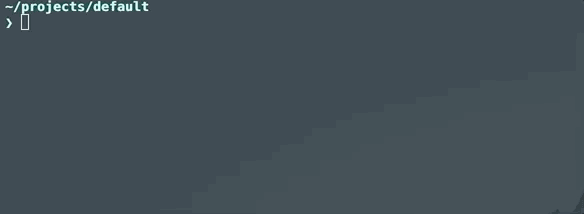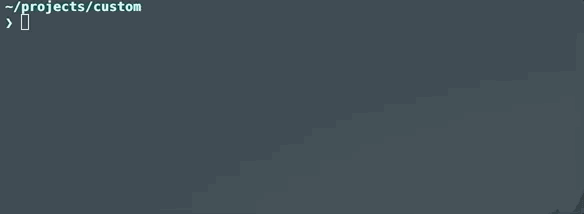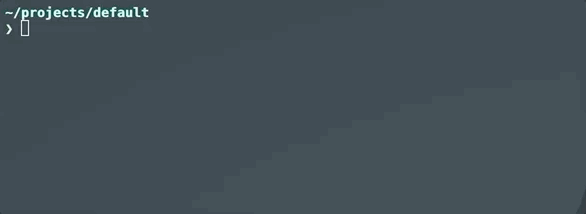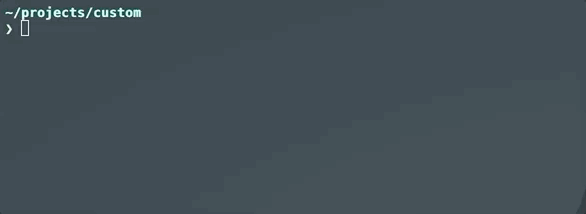1
2
3
4
5
6
7
8
9
10
11
12
13
14
15
16
17
18
19
20
21
22
23
24
25
26
27
28
29
30
31
32
33
34
35
36
37
38
39
40
41
42
43
44
45
46
47
48
49
50
51
52
53
54
55
56
57
58
59
60
61
62
63
64
65
66
67
68
69
70
71
72
73
74
75
76
77
78
79
80
81
82
83
84
85
86
87
88
89
90
91
92
93
94
95
96
97
98
99
100
101
102
103
104
105
106
107
108
109
110
111
112
113
114
115
116
117
118
119
120
121
122
123
124
125
126
127
128
129
130
131
132
133
134
135
136
137
138
139
140
141
142
143
144
145
146
147
148
149
150
151
152
153
154
155
156
157
158
159
160
161
162
163
164
165
166
167
168
169
170
171
172
173
174
175
176
177
178
179
180
181
182
183
184
185
186
187
188
189
190
191
192
193
194
195
196
197
198
199
200
201
202
203
204
205
206
207
208
209
210
211
212
213
214
215
216
217
218
219
220
221
222
223
224
225
226
227
228
229
230
231
232
233
234
235
236
237
238
239
240
241
242
243
244
245
246
247
248
249
250
251
252
253
254
255
256
257
|
---
tags:
- v2
search:
boost: 2
---
You can enable completion commands by setting the `EnableBashCompletion` flag on
the `App` object to `true`. By default, this setting will allow auto-completion
for an app's subcommands, but you can write your own completion methods for the
App or its subcommands as well.
#### Default auto-completion
```go
package main
import (
"fmt"
"log"
"os"
"github.com/urfave/cli/v2"
)
func main() {
app := &cli.App{
EnableBashCompletion: true,
Commands: []*cli.Command{
{
Name: "add",
Aliases: []string{"a"},
Usage: "add a task to the list",
Action: func(cCtx *cli.Context) error {
fmt.Println("added task: ", cCtx.Args().First())
return nil
},
},
{
Name: "complete",
Aliases: []string{"c"},
Usage: "complete a task on the list",
Action: func(cCtx *cli.Context) error {
fmt.Println("completed task: ", cCtx.Args().First())
return nil
},
},
{
Name: "template",
Aliases: []string{"t"},
Usage: "options for task templates",
Subcommands: []*cli.Command{
{
Name: "add",
Usage: "add a new template",
Action: func(cCtx *cli.Context) error {
fmt.Println("new task template: ", cCtx.Args().First())
return nil
},
},
{
Name: "remove",
Usage: "remove an existing template",
Action: func(cCtx *cli.Context) error {
fmt.Println("removed task template: ", cCtx.Args().First())
return nil
},
},
},
},
},
}
if err := app.Run(os.Args); err != nil {
log.Fatal(err)
}
}
```

#### Custom auto-completion
<!-- {
"args": ["complete", "--generate-bash-completion"],
"output": "laundry"
} -->
```go
package main
import (
"fmt"
"log"
"os"
"github.com/urfave/cli/v2"
)
func main() {
tasks := []string{"cook", "clean", "laundry", "eat", "sleep", "code"}
app := &cli.App{
EnableBashCompletion: true,
Commands: []*cli.Command{
{
Name: "complete",
Aliases: []string{"c"},
Usage: "complete a task on the list",
Action: func(cCtx *cli.Context) error {
fmt.Println("completed task: ", cCtx.Args().First())
return nil
},
BashComplete: func(cCtx *cli.Context) {
// This will complete if no args are passed
if cCtx.NArg() > 0 {
return
}
for _, t := range tasks {
fmt.Println(t)
}
},
},
},
}
if err := app.Run(os.Args); err != nil {
log.Fatal(err)
}
}
```

#### Enabling
To enable auto-completion for the current shell session, a bash script,
`autocomplete/bash_autocomplete` is included in this repo.
To use `autocomplete/bash_autocomplete` set an environment variable named `PROG`
to the name of your program and then `source` the
`autocomplete/bash_autocomplete` file.
For example, if your cli program is called `myprogram`:
```sh-session
$ PROG=myprogram source path/to/cli/autocomplete/bash_autocomplete
```
Auto-completion is now enabled for the current shell, but will not persist into
a new shell.
#### Distribution and Persistent Autocompletion
Copy `autocomplete/bash_autocomplete` into `/etc/bash_completion.d/` and rename
it to the name of the program you wish to add autocomplete support for (or
automatically install it there if you are distributing a package). Don't forget
to source the file or restart your shell to activate the auto-completion.
```sh-session
$ sudo cp path/to/autocomplete/bash_autocomplete /etc/bash_completion.d/<myprogram>
$ source /etc/bash_completion.d/<myprogram>
```
Alternatively, you can just document that users should `source` the generic
`autocomplete/bash_autocomplete` and set `$PROG` within their bash configuration
file, adding these lines:
```sh-session
$ PROG=<myprogram>
$ source path/to/cli/autocomplete/bash_autocomplete
```
Keep in mind that if they are enabling auto-completion for more than one
program, they will need to set `PROG` and source
`autocomplete/bash_autocomplete` for each program, like so:
```sh-session
$ PROG=<program1>
$ source path/to/cli/autocomplete/bash_autocomplete
$ PROG=<program2>
$ source path/to/cli/autocomplete/bash_autocomplete
```
#### Customization
The default shell completion flag (`--generate-bash-completion`) is defined as
`cli.EnableBashCompletion`, and may be redefined if desired, e.g.:
<!-- {
"args": ["--generate-bash-completion"],
"output": "wat\nhelp\nh"
} -->
```go
package main
import (
"log"
"os"
"github.com/urfave/cli/v2"
)
func main() {
app := &cli.App{
EnableBashCompletion: true,
Commands: []*cli.Command{
{
Name: "wat",
},
},
}
if err := app.Run(os.Args); err != nil {
log.Fatal(err)
}
}
```
#### ZSH Support
Auto-completion for ZSH is also supported using the
`autocomplete/zsh_autocomplete` file included in this repo. One environment
variable is used, `PROG`. Set `PROG` to the program name as before, and then
`source path/to/autocomplete/zsh_autocomplete`. Adding the following lines to
your ZSH configuration file (usually `.zshrc`) will allow the auto-completion to
persist across new shells:
```sh-session
$ PROG=<myprogram>
$ source path/to/autocomplete/zsh_autocomplete
```
#### ZSH default auto-complete example

#### ZSH custom auto-complete example

#### PowerShell Support
Auto-completion for PowerShell is also supported using the
`autocomplete/powershell_autocomplete.ps1` file included in this repo.
Rename the script to `<my program>.ps1` and move it anywhere in your file
system. The location of script does not matter, only the file name of the
script has to match the your program's binary name.
To activate it, enter:
```powershell
& path/to/autocomplete/<my program>.ps1
```
To persist across new shells, open the PowerShell profile (with `code $profile`
or `notepad $profile`) and add the line:
```powershell
& path/to/autocomplete/<my program>.ps1
```
|